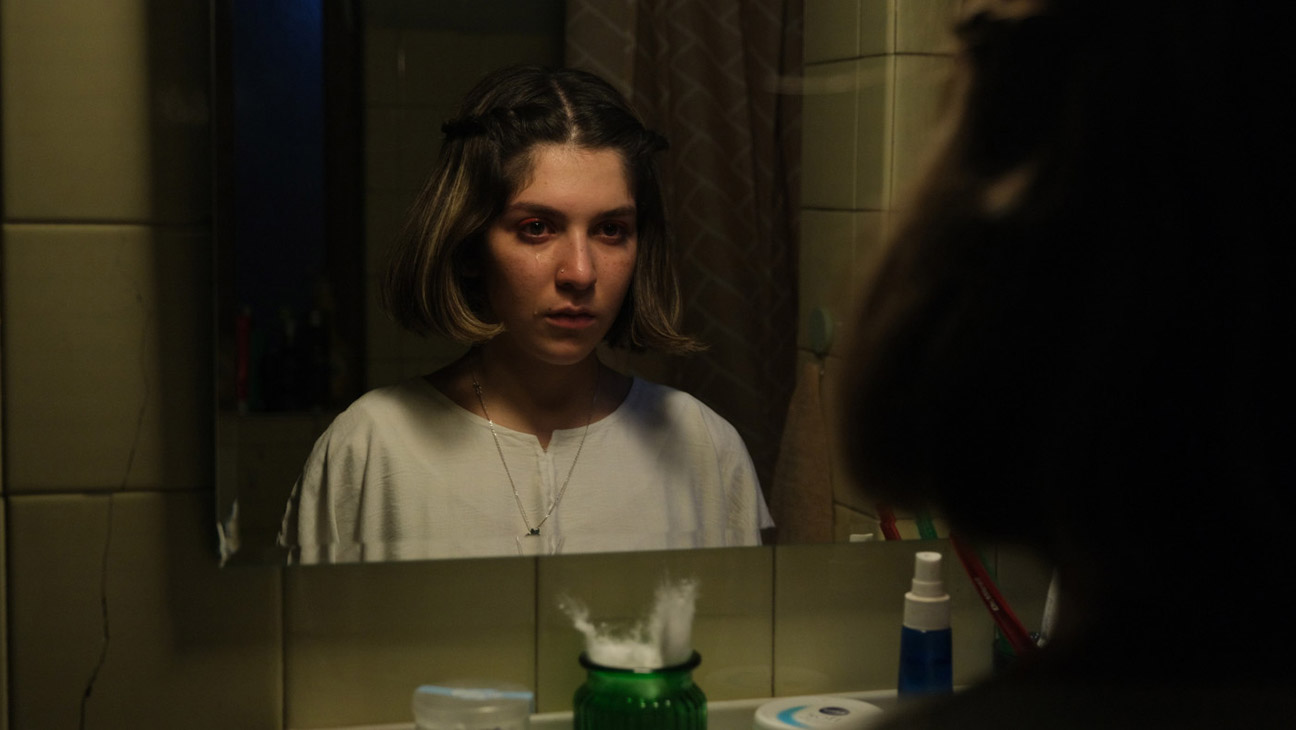Depictions of Iran in mainstream U.S. media tend to show a country filled with religious zealots burning American or Israeli flags in the streets. But anyone who’s seen a good Iranian movie, whether from masters like Abbas Kiarostami, Jafar Panahi and Asghar Farhadi, or from a budding generation of iconoclastic auteurs challenging the system with each new film, quickly understand that Iran is a nation of vast social diversity. There may be only one supreme leader, but the people are as varied and original as they come, and they will not be easily silenced.
Case in point: Seti, the combative heroine at the heart of director Soheil Beiraghi bracing drama, Bidad, has a love of singing and a talent to match. She models herself on Amy Winehouse, and her life often seems as tumultuous as that of the late Brit pop star. Like many young Iranian women of her generation, Seti wears a headscarf as little as possible, refusing to bow down to police patrolling the streets looking for renegades. All she wants to do is sing, but how can you do that under a government that quashes personal expression, especially when it’s coming from a woman?
Bidad
The Bottom Line
An Iranian singer rages against the machine.
Venue: Karlovy Vary International Film Festival
Cast: Sarvin Zabetiyan, Amir Jadidi, Leyli Rashidi, Ali Mollagholi Poor
Director, screenwriter: Soheil Beiraghi
1 hour 44 minutes
Portrayed by Sarvin Zabetiyan (Terrestrial Verses) in a powerhouse turn mixing live performances with moments of private turmoil, Seti goes from unknown artist looking for a few gigs to viral sensation symbolizing Iran’s rebellious youth, and she pays a hefty price for her dissidence. Shot without official authorization, Bidad (which means “Outcry” in Farsi) reveals an underside of Iranian life that rarely gets past the censors — a clandestine world of musicians, punks and potheads trying to stay afloat in a country where the powers-that-be do all they can to contain the rage.
Beiraghi already chronicled suppressed female talent in his promising second feature, Cold Sweat, about an indoor soccer player whose husband tries to sabotage her career out of pure chauvinist spite. While that film was set in a world of pro sports and TV news, Bidad takes place in Tehran’s countercultural underbelly, where secret concerts are held in cavernous basements and tattooed bad boys grow weed in their home gardens. (The backdrop brings to mind Ali Ahmadzadeh’s highly subversive Critical Zone, which was also shot without permission and followed a drug dealer on his nightly rounds through the city.)
“You can’t hear my voice,” the young Seti complains to a music teacher at the start of the film, only to be told that female singers can never be louder than the men they’re accompanying. But Seti, an ambitious songwriter with killer pipes, refuses to heed such advice, appearing on stage at an illegal venue that immediately gets raided by Iran’s Guidance Patrol (the vice squad of the Islamic regime).
Desperate to keep singing at all costs, she decides to perform a cappella from an alleyway, attracting bystanders who record her gig and post it online. Seti quickly turns into a symbol of artistic resistance, part of a generation of young Iranian women inspired by Mahsa Amini, a 22-year-old girl who was detained for refusing to wear a hijab and killed in custody.
Bidad tracks Seti’s roller-coaster trajectory, which includes an arrest and stint in jail, while focusing on two key relationships in her troubled life: The first is with her single mom (Leyli Rashidi), a hot-blooded alcoholic whose explosive temper tantrums send her daughter rushing for the door and into the night. The second is with a smooth-talking and slightly unhinged weed fanatic (Amir Jadidi) who helps Seti to crawl out of her shell, especially when she picks up a stutter following her ordeal in a holding cell.
Neither of these characters are what you would call average people, yet they both make major sacrifices so that Seti can escape an untenable situation. By populating his movie with rebels and outcasts of all sorts, Beiraghi reveals Iran, or at least Tehran, to be a place full of unrest ready to boil over at any moment. Seti may be uniquely talented; she’s also far from unique. And while Bidad focuses on the story of one singer, it shows how she’s part of a larger, burgeoning chorus.
